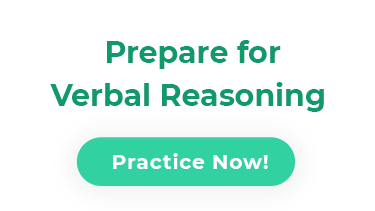What Is a Reading Comprehension Test?
The reading comprehension test is a verbal reasoning aptitude test meant to measure your aptitude for gathering information, critical thinking, and understanding of varying contexts. These exams ask you to look at different selections of literature (poems, excerpts of novels, excerpts of articles, et cetera) and answer a series of questions based of the passage.
In this article, we will take a look at a few free sample passages with relative questions and answers. But first, let’s talk about preparation!
How to Prepare for Reading Comprehension Tests?
Regardless of the type of English-based assessment, the easiest ways to prepare are to make a habit of reading for fun and utilizing online practice exams such as the one below! Broadening your reading scope will lead to inherent understanding of context.
What Kind of Questions Can I Expect in Reading Comprehension Tests?
As aforementioned, reading comprehension tests expect you to gather varying bits of information from a given passage to determine your contextual understanding. The question types vary based on the type of passage (poem, novel, article, etc.) and the level of difficulty (elementary to advanced). For the sake of practice, we will look at a particularly difficult excerpt together before you move on to the individual practice selections at the bottom. The practice questions for the example excerpt include tips for tackling the different question types.
Example Excerpt from Shakespeare’s Macbeth, Act 1 Scene V
Messenger
The king comes here to-night.
Lady Macbeth
Thou’rt mad to say it:
Is not thy master with him? Who, were’t so,
Would have inform’d him for preparation.
Messenger
So please you it is true: our thane1 is coming:
One of my fellows had the speed of him,
Who, almost dead for breath, had scarcely more
Than would make up his message.
Lady Macbeth
Give him tending2;
He brings great news.
Example Question 1:
Based on the context, which of the following is a synonym for “thane”?
- Monarch
- Matriarch
- Serf
- Peasant
Explanation: This is a common question type in reading comprehension exams. The question asks you to identify a given word, analyze the surrounding context for meaning, and determine which choice has a similar meaning. In this example, we can see that the messenger is telling Lady Macbeth that the “thane” is coming. He began the exchange by informing her that the king would be arriving that night, so we can safely assume that “thane” and “king” have the same meaning.
Looking at our answer choices, we can eliminate C and D. Both of these words mean the same thing (a person who is low in the feudal system or a general hierarchy, which is the opposite of a king). Now, looking at choice B, we can parse out that “matriarch” refers to a woman in charge due to the prefix matri-, meaning mother. In the context, “king” and “thane” have a masculine meaning, making “matriarch” a clearly wrong answer. A: Monarch is the correct answer.
Example Question 2:
Which of the below phrases most likely means the same thing as the underlined phrase?
- Excited
- Exhausted
- Calm
- Sordid
Explanation: Another common question type within the reading comprehension assessment asks you to reference an underlined phrase and use the given context to determine the meaning. In this question, the underlined phrase is “dead for breath,” which you’ve probably figured out means “breathless” or “out of breath.” Luckily, this meaning makes eliminating choices A and C easy.
A trick that test makers will often use in these types of questions is to throw in an advanced-level vocabulary word (“sordid” in this case) to throw you off. The word “sordid” means dirty or repulsive–so it wouldn’t make sense in the passage’s context. Using this logic, we can safely assume that B: Exhausted is the correct answer.
Example Question 3:
What is most likely the reason the author chose to use the word “tending” in the passage?
- “Tending” is referring to making food for the thane, so the author chose this word to show that the king will be hungry when he arrives.
- “Tending” is referring to patience, so the author chose this word to show that though the messenger is tired, he should give the king some space when he arrives.
- “Tending” is referring to outrage, so the author chose this word to show the reader that Lady Macbeth is angry that the king is coming.
- “Tending” is referring to disgust, so the author chose this word to show that everyone is disgusted by the king’s arrival.
Explanation: This question type asks you to use your critical thinking skills to empathize with the author in order to try and understand the author’s purpose. We can again rely heavily on the context: the word “tending” is used in the same place that Lady Macbeth states that the king is bringing good news. Based on this, we can safely eliminate choices C and D.
Looking at our remaining choices and the context, we know that the messenger states that the king is “dead for breath” meaning “exhausted,” but there is no mention of food anywhere in the passage. The lack of context for food makes A an improbable answer, leaving us with the correct answer, B.

